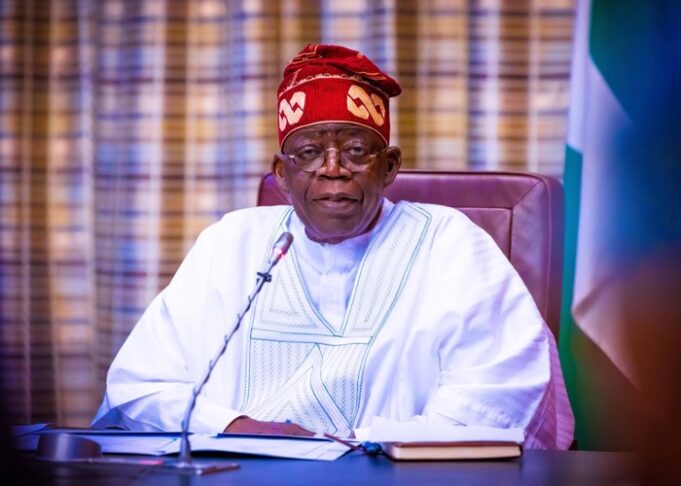Many citizens want President Tinubu’s government to control the economy and curb the rising prices of food, transportation, goods and services. Unfortunately, the reverse has been the case, majorly because the government deployed its worst strategy through the monetary policy engaged by the Central of Nigeria (CBN) and fiscal and trade policy of the same government.
The APC lead administration presents itself as the solution to the nation’s economic challenges. Within one year of the government administering its economic policy, the government became popular for earning more revenues and giving out palliative subsidies. Meanwhile, the government failure to address inflation is a warning sign of declining naira value, confidence and a loss of purchasing power. This is seen in citizens’ economic limitation evidenced in lower growth, lower employment, weaker real wages, secular stagnation, and declining in public infrastructure development.
Obviously, as Nigerians are burdened by the weight of inflation, the government deployed tools of nationalism propaganda. By nationalism propaganda, they appeal and call for sacrifices from citizens, they also accuse unknown enemy within and outside of driving up prices, still they tried to weaken citizens legitimately holding governments accountable for high prices of food, transportation and other basic necessities of life, if citizens call for promotest or demonstration, they clamp on them as terrorist.
Why would governments not be interested in bringing down inflations and higher cost of living in Nigeria? First it gives them more power. Reason being that when the federal government of Tinubu and Central Bank of Nigeria (CBN) talk about price stability, it means an over sixty percent depreciation of the naira as we have it today. A look at the free fall of the naira currently, exchange at N1635/US $1.
The Tinubu government destroyed the currency they issued and hoped to perfectly control. That is why they need more debt and higher taxes; the Central Bank of Nigeria (CBN) for instance has raised a whooping N9.27 trillion worth of Nigerian Treasury Bills (NTBs) across its auctions between January and August 2024. Similarly, CBN and Debt Management Office (DMOs), in less than six months, have ranked over $1 billion debt through the so-called Domestic dollar bonds and other bonds on short to medium- and long-term basis.
Here the concerns are that such adventure by the Tinubu’s government, additional put pressure on the naira since, the goal of the oversubscribed $900 million domestic dollar bonds is to bring onshore dollar liquidity to the official market, which could lead to market fragmentation, increase the cost of naira securities, and add pressures on the naira.
Hideously, high interest rate, higher tax and problematic import tariff are not a tool to reduce inflation, but rather to justify rising public indebtedness that stood over N134 trillion today. This are economic instrument of the Tinubu’s administration, a ‘Fiscalist’ for short.
Secondly, overtime elected government official and political appointees benefit from inflation, as this enhances their political spending commitments in a constantly depreciated local currency such as Naira.
Arguably, many readers might think that the government is very serious about inflation coming down, but the reality is that we live in a situation where the federal government of Tinubu and Central Bank of Nigeria (CBN) work to perpetuate unsustainable public budget deficits and debt. Therefore, they continue to borrow through technical mediums, such as bonds and treasury papers,securitization of government revenues, such as the NLNG FG income, as well as other fixed income and financial derivatives, citizens have limited knowledge on unlike collecting direct loans from IMF, World Banks and others that are suspicious to citizens.
The government is slowly consuming away the naira it issues. That is why the government is accused of fuelling inflation through its economic policies. Leading many to question. why it is getting harder for families to make ends meet, buy food, pay rent, school fees or for small businesses to flourish.
Perhaps, the Nigerian government is responsible for inflation that is constantly making naira to lose its value and eroding citizens’ purchasing power.
Our review of the National Bureau of Statistics (NBS), the Nigerian official data warehouse, responsible for calculating the Consumer Price Index (CPI) measures the change over time in prices of 740 goods and services consumed by people for day-to-day living. The index weights are based on expenditures of both urban and rural households in the 36 states.
However, the most important categories in the CPI are: Food and Non-alcoholic Beverages (52% of the total weight), Housing, Water, Electricity, Gas and Other Fuel (17%), Clothing and Footwear (8%). Transports account for 7% and Furnishings and Household Equipment Maintenance for 5%. Others include: Education (4%); Health (3%); Miscellaneous Goods and Services (2%); Restaurants and Hotels (1%); Alcoholic Beverages, Tobacco and Kola (1%); Recreation and Culture (1%); and Communications (1%).
Nigeria’s headline inflation rate quickened to 32.7% in September 2024, up from 32.2% in the prior month, marking significant increase. Identified contributing factors include the depreciation of the naira and the increase in transportation prices (27.2% vs 25.7%) following hikes in fuel prices since early September.
Additionally, food inflation, which accounts for the bulk of Nigeria’s inflation basket rose to 37.8% in September, up from 37.5% in August, amid the impact of recent severe floods in food-producing areas.
Meanwhile, core inflation, which excludes the prices of volatile agricultural products and energy stood at 27.4% in September, consumer prices surged by 2.5%, the most in six months, after a 2.2% rise in the previous month.
Nigeria’s headline inflation is a product of the removal of fuel subsidies and a weakening local currency and related policy economics of the Tinubu’s administration.
Food inflation, which accounts for the bulk of Nigeria’s inflation basket slowed down to 39.5%, compared to June’s reading of 40.8%.
Additional downward pressure came from prices of housing and utilities (29.4% vs 30.3% in June 2024), transportation (25.2% vs 25.6%) and education (16.9% vs 17.2%).
Meanwhile, the annual core inflation rate, which excludes farm produce and energy, reached a new record high of 27.47% in July. On a monthly basis, consumer prices rose by 2.28% in July, after a 2.31% increase in June.
Nigeria’s headline inflation rate slowed down for the second month to 32.2% in August 2024, the softest in six months, down from 3.4% in July. Nigeria’s food inflation, the largest component of its inflation basket, eased to 37.5% in August from 39.5% in July, aided by higher corn yields and a six-month duty-free window for corn and wheat imports. Prices also slowed down a bit for housing & utilities (28.1% vs 29.4% in July); restaurants and hotels (29.3% vs 29.9%) and health (22.5% vs 23.2%). However, core price growth, which excludes agricultural produce and energy, quickened to 27.6% from 27.5%. On a monthly basis, consumer prices increased by 2.22% in August, compared to a 2.28% rise in the prior month. Hence having review the current inflation figures experience since the beginning of year in comparison with the inflation target of 2024 budget of 24%, the difference is so clear.
Sadly, governments love CPI as a measure of inflation. But its failed to address the core challenge in the economy. Yet, strongly pushing the CPI narrative to suit global appeals. This is why the CPI’s basket calculation fluctuates so frequently.
Even if it accurately measures, it will underestimate the rise in prices of non-replaceable goods and services by adding them to a basket of things we consume maybe once or twice a year at best. The government pushes this information, which is a carefully crafted basket of goods and services weighted by the same people who are not ready to bring down inflation in the real sense.
For us when a politician promises that he or she will bring down inflation,reduce cost of governance, as well as tackle high cost of living they are always not sincere.
A weaker currency and huge public debt is a tool to increase government power in the economy. By the time you find out, it may be too late as inflation burdens us all.
Adefolarin A. Olamilekan,Political Economist:
email:adefolarin77@gmail.com.
Tel: 08073814436





